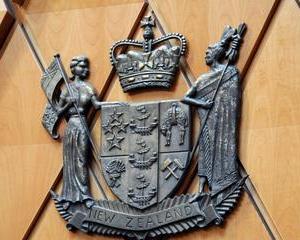
A balcony collapsed during a Six60 concert at a Dunedin flat because it was "critically overloaded", an independent report has found.
Eighteen people were injured, including two seriously, when the it gave way at 598 Castle St on March 4 this year.
The Dunedin City Council began an investigation following the incident.
The council's general manager services and development, Simon Pickford, said today that DCL Consulting confirmed the collapse came as a result of "the balcony being critically overloaded beyond its ultimate capacity".
The balcony met the building code requirements when built and had building consent, although questions remained over the suitability of the venue to hold a concert, the report said.
"While it's important to know the balcony was built to code, the key issues centre on the event itself and where it was held," Mr Pickford said.
"This was a great initiative where students were enjoying themselves. However, this wasn't a suitable location for the concert.
"As a city we need to work out the best way for students to have fun while they are in Dunedin, but to do it safely.
"We are all very aware students were seriously hurt as a result of this incident and we want to reduce the chances of anything like this happening again."
These issues would be discussed with stakeholders including the University of Otago and the Otago University Students' Association (OUSA).
Mr Pickford said the council had made suggestions to property owners to get independent engineering advice to strengthen the other balconies.
A different loading standard for balconies - particularly in the student area - could be implemented with a law change, the report said.
The council had already referred this to the Ministry of Business, Innovation and Employment, suggesting they look at the option of allowing councils to enforce higher standards than under the current Building Code.
The ministry would receive the full report, as will the flat's owner and other property owners at the same address.
The council advised people making new building consent applications to read the report and and was writing to the Otago Property Investors Association and local property management companies suggesting they encourage members who own high density residential buildings to do the same.
The University of Otago said it supported the report's recommendations.
"The University supports the recommendations in the report, and will fully involve itself as a priority in discussions with the DCC, Police and others to come up with ways to ensure that safety considerations are more fully incorporated into the planning around future private events involving students in the North Dunedin area."












